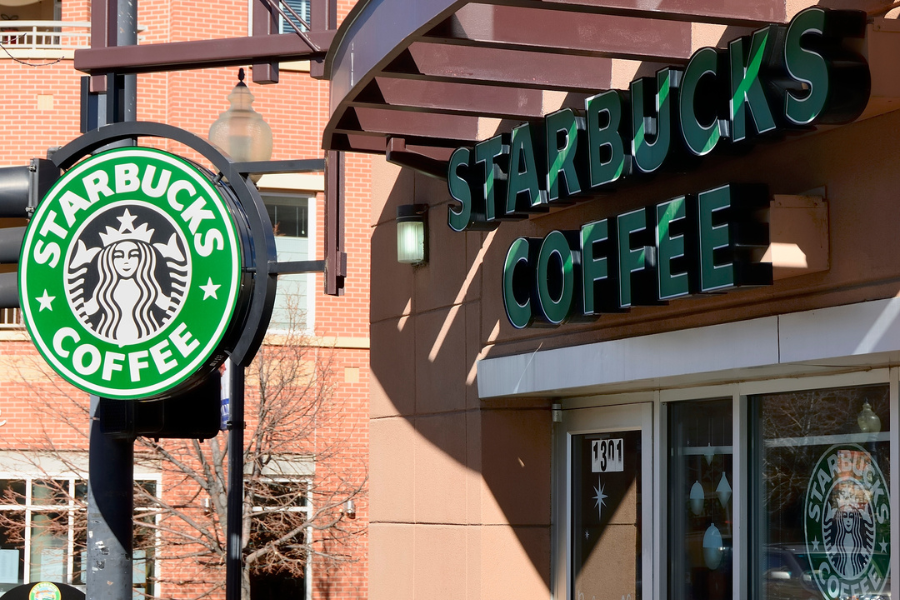

Starbucks Corp. delivered results that were in line with expectations, assuaging investors who had been bracing for another meltdown after being blindsided by the previous quarter’s slump.
Sales at coffee shops open at least a year fell 3% in the company’s fiscal third quarter, the second straight drop. While the number of transactions fell, US diners are spending more each visit, helping to prop up revenue. The company reaffirmed its guidance for the full year.
“The decline in same-store sales and the decline in traffic were pretty much in line with what people were expecting,” said Brian Yarbrough, an analyst with Edward Jones.
The shares rose 5% at 6:37 p.m. in extended New York trading. The company has faced intensified scrutiny since its previous quarterly results, when an unexpected slump in sales and guidance cut sparked the biggest fall in the stock since the start of the pandemic.
Starbucks’ business has taken a hit as consumers pressured by inflation and dwindling savings tighten their spending. In the US, its largest market by number of stores, the company has sought to lure customers in with discounts and new products. It’s also looking to speed up service, while facing renewed pressure from an activist investor.
During Tuesday’s call with analysts, Chief Executive Officer Laxman Narasimhan confirmed that Elliott Investment Management had taken a stake in Starbucks, adding that conversations with the activist have been constructive. Elliott’s stake was previously reported by the Wall Street Journal.
Chief Financial Officer Rachel Ruggeri said the chain’s efficiency efforts “are tracking ahead of expectations” and partially offset investments the company made to cope with the cautious consumer environment, which include stepped-up marketing and promotions. Narasimhan said that the company’s efforts to boost demand and speed up service “will position us stronger” for growth in Starbucks’ next fiscal year.
An increase in customers’ average order value in North America helped stem a steeper sales decline. The chain has been enticing diners to its app with exclusive deals, saying on Tuesday that the number of US loyalty members active over 90 days had risen 7% from a year ago.
Same-store sales in China, which has been a weak spot, declined more than expected due to a slump in transactions and average ticket sizes. The company is in the early stages of exploring a strategic partnership in China, Narasimhan said on the call.
Other parts of the international business have suffered from consumer boycotts over the company’s perceived stance in the Israel-Hamas war. The chain has said it doesn’t take political positions.
Earnings per share, excluding some items, were 93 cents in the quarter ended June 30, slightly above the average estimate. Operating margin declined from the prior year, mostly due to an increase in promotions and improved wages and benefits for store workers, among other factors.
Starbucks still sees comparable-store sales this year in a range of flat to down in the low-single digits.

Executives from LPL Financial, Cresset Partners hired for key roles.

Geopolitical tension has been managed well by the markets.

December cut is still a possiblity.

Canada, China among nations to react to president-elect's comments.

For several years, Leech allegedly favored some clients in trade allocations, at the cost of others, amounting to $600 million, according to the Department of Justice.
Streamline your outreach with Aidentified's AI-driven solutions
This season’s market volatility: Positioning for rate relief, income growth and the AI rebound
